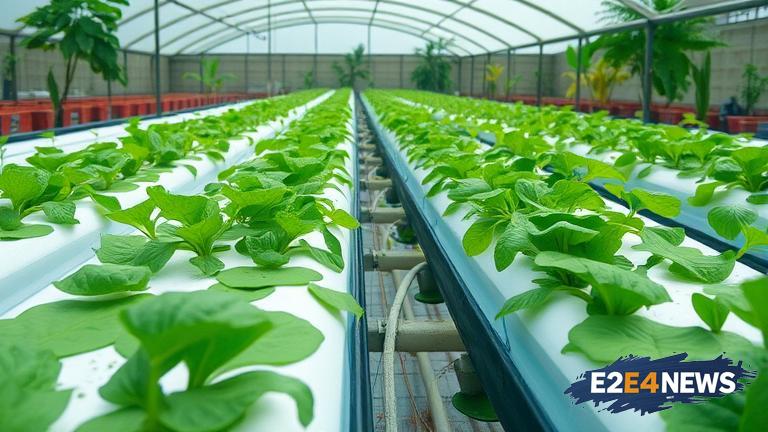Yaba College of Technology, a prominent institution in Nigeria, has been awarded a substantial grant of €117,000 by the European Union for an innovative aquaponics project. This groundbreaking initiative aims to promote sustainable agriculture and improve food security in the country. The project, which combines conventional aquaculture with hydroponics, is expected to increase crop yields and reduce water consumption. By leveraging this innovative technology, Yabatech seeks to address the pressing issue of food scarcity and contribute to the nation’s economic growth. The EU grant is a testament to the institution’s commitment to research and development, as well as its potential to drive positive change in the region. The aquaponics project is poised to have a significant impact on the local community, providing opportunities for skills development and employment. Furthermore, the project’s focus on sustainability aligns with the United Nations’ Sustainable Development Goals, particularly Goal 2, which emphasizes the importance of achieving zero hunger. The Yabatech team, comprised of experts in various fields, will work tirelessly to ensure the project’s success, collaborating with local stakeholders and international partners to share knowledge and best practices. As the project progresses, it is expected to serve as a model for other institutions and communities, demonstrating the potential of aquaponics to transform the agricultural sector. In addition to its economic benefits, the project will also contribute to environmental conservation, reducing the environmental footprint of traditional farming methods. The EU grant is a significant milestone for Yabatech, marking a major breakthrough in its efforts to secure international funding for innovative projects. The institution’s reputation as a hub for research and innovation is expected to grow, attracting more partnerships and collaborations in the future. The project’s success will also depend on the support of local authorities, who will play a crucial role in facilitating the implementation of the project. As Nigeria continues to grapple with the challenges of food insecurity, the Yabatech aquaponics project offers a beacon of hope, demonstrating the potential of innovative technologies to drive positive change. The project’s impact will be closely monitored, with regular assessments and evaluations to ensure that it is meeting its objectives. In the long term, the project is expected to contribute to the development of a more sustainable and resilient food system, benefiting not only the local community but also the nation as a whole. With the EU grant, Yabatech is poised to make a significant contribution to the global effort to achieve sustainable development, demonstrating the institution’s commitment to addressing some of the world’s most pressing challenges. The project’s focus on aquaponics is particularly significant, given the growing recognition of the importance of sustainable agriculture in addressing global food security challenges. As the world’s population continues to grow, the need for innovative solutions to address food scarcity has become increasingly urgent. The Yabatech project is a timely response to this challenge, offering a promising solution that can be replicated in other contexts. In conclusion, the Yabatech aquaponics project, made possible by the EU grant, is a groundbreaking initiative that has the potential to transform the agricultural sector in Nigeria, contributing to sustainable development and food security. With its focus on innovation, sustainability, and community engagement, the project is poised to have a lasting impact, serving as a model for other institutions and communities to follow.
